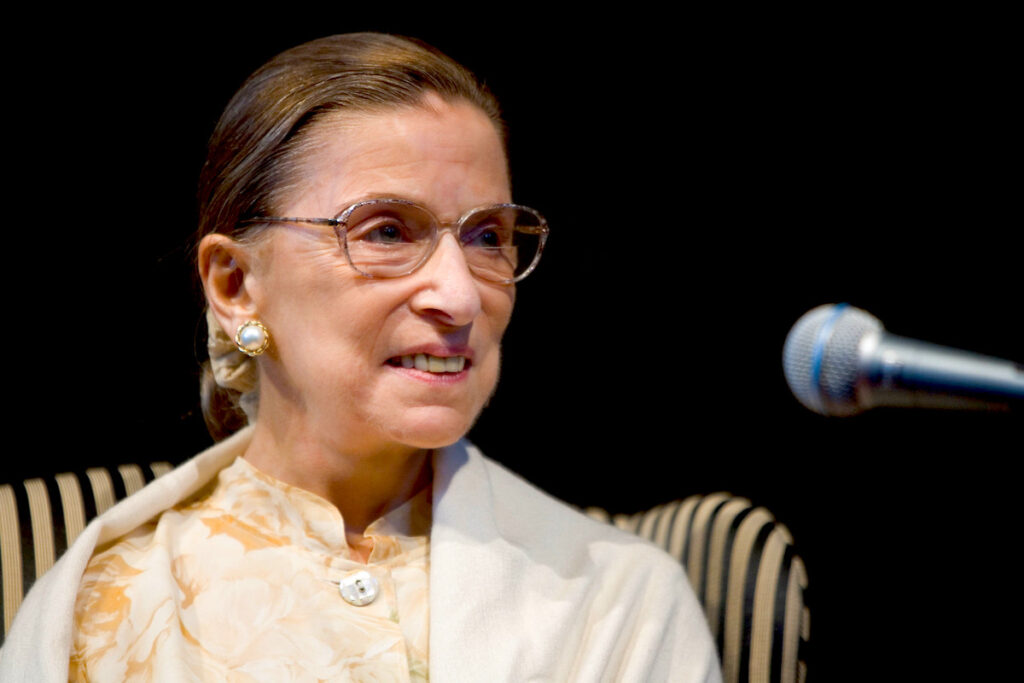Many of last week’s eulogies have lauded that Justice Ginsburg was the master of the dissent. As someone raised in a Jewish home, I was taught that dissent was an art.
Many of you probably saw the jokes on Twitter two weeks ago celebrating the arrival of 5781 for the Jewish people, while wishing a lot of luck to everyone we were leaving behind in 2020. Arch, but with a scintilla of hope; yet another 2020 memory to be catalogued from our couches. Like everything else, we did not know what was coming.
When the Senate confirmed Ruth Bader Ginsburg to become an Associate Justice of the Supreme Court in 1993, she would become only the sixth Jewish person, and first Jewish woman, to serve on the Court. An NPR report in 2009, detailed the mythical “Jewish seat”; four of the five previous Jewish justices had immediately succeeded each other, as if bestowing the spot to the next Jew. But when Justice Ginsburg took the bench, there had not been a Jewish justice since 1969 (she would be joined a year later by Justice Stephen Breyer, and in 2010 by Justice Elena Kagan). The daughter of a Russian-Jewish immigrant, was she not immune from the scars of anti-Semitism; as SCOTUSblog noted last week, Ginsburg recalled, in childhood, seeing a sign in front of a Pennsylvania resort that said “No dogs or Jews allowed.” She spent her life and career fighting for those who were forgotten and marginalized; to a generation of Jewish women coming of age, she was someone who had made good on the promise of America
On Friday night, the cataclysm of the moment was paralyzing. This was Shabbat. This was the new year. Synagogues across the country had started streaming their Rosh Hashanah services, just as the cable networks broke into their broadcasts to announce the justice’s death. Folks who had gone offline for the holiday weekend wearily logged back on, alerted by text message, or phone call, or the announcement of their rabbi on Zoom.
The Jewish and LGBTQ communities are so similar in their traditions of mourning and celebration; these things are done together, in minyans and crowds. Our joys are multiplied, our burdens softened. In normal times, New Yorkers would have gathered at Stonewall, as we had to celebrate marriage equality, and, years later, to mourn the victims of Pulse. In pandemic times, we stared at our screens, and typed. We held each other up in a world that was falling apart. This was Shabbat? This was the new year?
Many of last week’s eulogies have lauded that Justice Ginsburg was the master of the dissent. As someone raised in a Jewish home, I was taught that dissent was an art. That even when you find yourself in the minority, you can both respect the law and push its quest for justice. Justice Ginsburg’s death leaves our country in uncertain fates. What will happen to the institutions that we rely upon to parse the law? Who will take the ninth seat on the Court, and when will that be? As with many parts of Jewish life, we have more questions than answers.
But we are also markers of time; when a baby is named, they are given a Hebrew name, and then acknowledged as the child of the parents who came before them. We are called to the Torah, even in old age, with the names of those who lead us there.
The night that her mother died, when Ruth was just a teenager, Ruth was not permitted to be a part of the minyan, or group of mourners, because of her sex. On the night that Ruth herself died, she had shattered so many laws that had oppressed. She had changed the face of what an American woman could be For you see, many of the rabbis announcing the news of her death were women, too.

